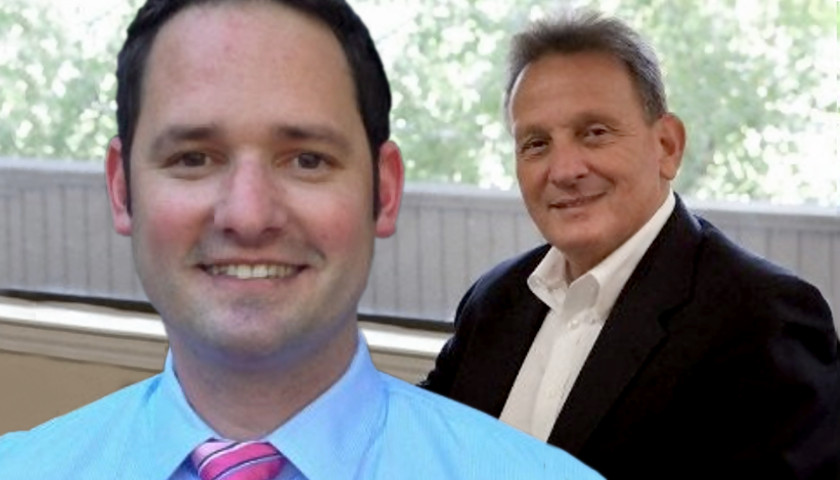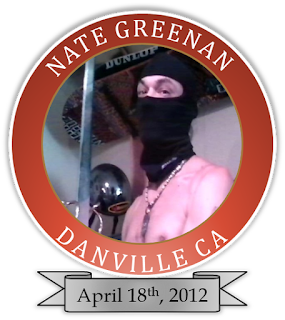Bennett Customer
Founders Indicted

Pete Bennett met Kobe Bryand at Sieberlich Accountancy while giving his friend the receptionist for lunch. Nicest guy ever, was not signed as he was just out of high school and considering his options.
Indian Corporation Pays Record Amount To Settle Allegations Of Systemic Visa Fraud And Abuse Of Immigration Processes
Pete Bennett knows how it feels, he knows that numerous InfoSys
Executives resided in Danville when little things like his F-250
Explodes into a ball of fire on NB-680 during August 2004. This
trip to Walnut Creek for a meeting that was staged by parties connected
to the Contra Costa Narcotics Enforcement Taskforce arrested by the FBI
starting in 2011.

Bay Area Homeless
This card has supporting text below as a natural lead-in to
additional content.

Senator Mike Lee
The Senator is likely unaware of events connected to Pete Bennett
mostly orbiting around the Mormon Community located in the San
Francisco East Bay

Exporting America
Pete Bennett was first interviewed by CNNNext with reporter James
Hattori by 2004 his truck exploded, his peers killed or murdered and
his family destroyed.

Mitt Romney - Bain Capital - the ultimate outsourcer
One of biggest donors to the Romney objective leads to Bechtel,
Fremont Group and Southern Pacific to East Bay Attorney Rick
Kopf. Things were simple in 1989 as in the Matter of Bennett
v. Southern Pacific a 21 year old Walnut Creek resident was murdered
in Concord CA. That was a witness that vanished in 1989 but
hidden by Contra Costa Law Enforcement until Bennett uncovered that
incident plus others.

Nate Greenan
The fate of Nate Greenan is highly suspicious but occurred just weeks after Walnut Creek / Concord resident John Newman was beaten to death on March 30th, 2012 which parallels the attempt on Bennett at the County Jail under the command of Commander Chris Wenzel.
Department of Justice
U.S. Attorney’s Office
Eastern District of Texas
FOR IMMEDIATE RELEASE
Wednesday, October 30, 2013
Indian Corporation Pays Record Amount To Settle Allegations Of Systemic Visa Fraud And Abuse Of Immigration Processes
Department of Justice
Office of Public Affairs
Office of Public Affairs
PLANO, Texas – Infosys Corporation, an Indian
company involved in consulting, technology, and
outsourcing, has agreed to a civil settlement of
allegations of systemic visa fraud and abuse of
immigration processes by paying a record settlement amount
and agreeing to enhanced corporate compliance measures,
announced U.S. Attorney John M. Bales. The $34
million payment made by Infosys as a result of these
allegations represents the largest payment ever levied in
an immigration case.
Infosys is
located in thirty countries including the United States,
and in 17 cities in the United States, including a
location in Plano, Texas. The Plano location is
responsible for handling the immigration practices and
procedures for the United States operations of
Infosys. Infosys brings foreign nationals into the
United States in order to perform work and fulfill
contracts with its customers under two visa classification
programs relevant to this matter, H-1B and B-1.
According to
court documents, the government alleged instances of
Infosys circumventing the requirements, limitations, and
governmental oversight of the H-1B visa program by
knowingly and unlawfully using B-1 visa holders to perform
skilled labor in order to fill positions in the United
States for employment that would otherwise be performed by
United States citizens or require legitimate H-1B visa
holders. The government also alleges that Infosys
did so in order to increase profits, minimize costs of
securing visas, increase flexibility of employee movement,
obtain an unfair advantage over competitors, and avoid tax
liabilities. Specific allegations include the
following:
· Infosys used B-1
visa holders to perform jobs that involved skilled labor
that were instead required to be performed by United
States citizens or required legitimate H-1B visa holders.
· Infosys submitted
“invitation letters” to U.S. Consular Officials that
contained false statements regarding the true purpose of a
B-1 visa holder’s travel in order to deceive U.S. Consular
Officials and secure entry of the visa holder into the
United States. These letters often stated that the
purpose of travel was for “meetings” or “discussions” when
the true purpose was to engage in activities not
authorized under a B-1 visa.
· Infosys directed B-1
visa holders to deceive U.S. Consular Officials, including
specific instructions to avoid certain terminology, to
secure entry of the visa holder into the United
States. Infosys created a “Do’s and Don’ts”
memorandum that it provided to foreign nationals entering
the United States on a B-1 visa that included the
following directions: “Do not mention activities like
implementation, design & testing, consulting, etc.,
which sound like work”; “Also do not use words like, work,
activity, etc., in the invitation letter”; and “Please do
not mention anything about contract rates.”
· Infosys told its
foreign nationals to inform U.S. Consular Officials that
their destination in the United States was the same as
that provided in the Labor Condition Application,
notwithstanding the fact that Infosys knew that the
destinations had changed.
· Infosys wrote
and revised contracts with clients in order to conceal the
fact that Infosys was providing B-1 visa holders to
perform jobs that involved skilled or unskilled labor that
were otherwise required to be performed by United States
citizens or required legitimate H-1B visa holders.
· Infosys concealed
the fact that B-1 visa holders were performing jobs that
involved skilled or unskilled labor that were otherwise
required to be performed by United States citizens or
required legitimate H-1B visa holders by billing clients
for the use of off-shore resources when, in fact, work was
being performed by B-1 visa holders in the United States.
· Infosys failed to
maintain I-9 records for many of its foreign nationals in
the United States in 2010 and 2011 as required by law,
including a widespread failure to update and re-verify the
employment authorization status of a large percentage of
its foreign national employees.
The settlement
agreement requires Infosys to make a payment to the United
States of $34 million. The agreement was largely
predicated on Infosys’s cooperation with the United States
during the investigation and on compliance measures taken
by Infosys in the areas of B-1 and H-1B visas and I-9
documentation, both prior to and during the course of the
investigation. The settlement agreement requires
additional auditing for I-9 forms; a reporting requirement
for B-1 usage; an agreement to continue to use only
detailed invitation letters, and the continued use of
corporate disciplinary processes for employees that
violate the immigration laws of the United States.
“We will not
tolerate actions that mislead the United States and
circumvent lawful immigration processes, whether
undertaken by a single individual or one of the largest
corporations in the world,” said U.S. Attorney
Bales. “The H-1B and B-1 visa programs are designed
and intended to protect the American worker; and we will
vigorously enforce the requirements of those programs.”
David M. Marwell, Special Agent in Charge of Homeland
Security Investigations in Dallas, concurred: “This
settlement against Infosys is the largest immigration fine
on record. The investigation indicated that Infosys
manipulated the visa process and circumvented the
requirements, limitations, and governmental oversight of
the visa programs. The investigation also showed
that more than 80 percent of Infosys’s I-9 forms for 2010
and 2011 contained substantive violations.
Ultimately, these actions by Infosys cost American jobs
and simultaneously financially hurt companies that sought
to follow the laws of this nation. Companies that
misuse the visa process can expect to be scrutinized and
held accountable.”
The
investigation and settlement also earned the praise of
George M. Nutwell III, Special Agent-in-Charge of the
Houston Field Office, Diplomatic Security Service, U.S.
Department of State, who said that “the Infosys
investigation illustrates the unique role that DSS plays
in investigating complex visa fraud cases that reach far
beyond U.S. borders. DSS collaborates with our law
enforcement partners and is committed to investigating and
bringing to justice those who violate the law.”
This case was
investigated and the settlement negotiated by Assistant
U.S. Attorneys Shamoil T. Shipchandler, Alan R. Jackson,
and J. Kevin McClendon, and special agents and attorneys
from the Department of State, Diplomatic Security Service,
U.S. Immigration and Customs Enforcement’s (ICE) Homeland
Security Investigations (HSI), and U.S. Citizenship and
Immigration Services.










No comments:
Post a Comment